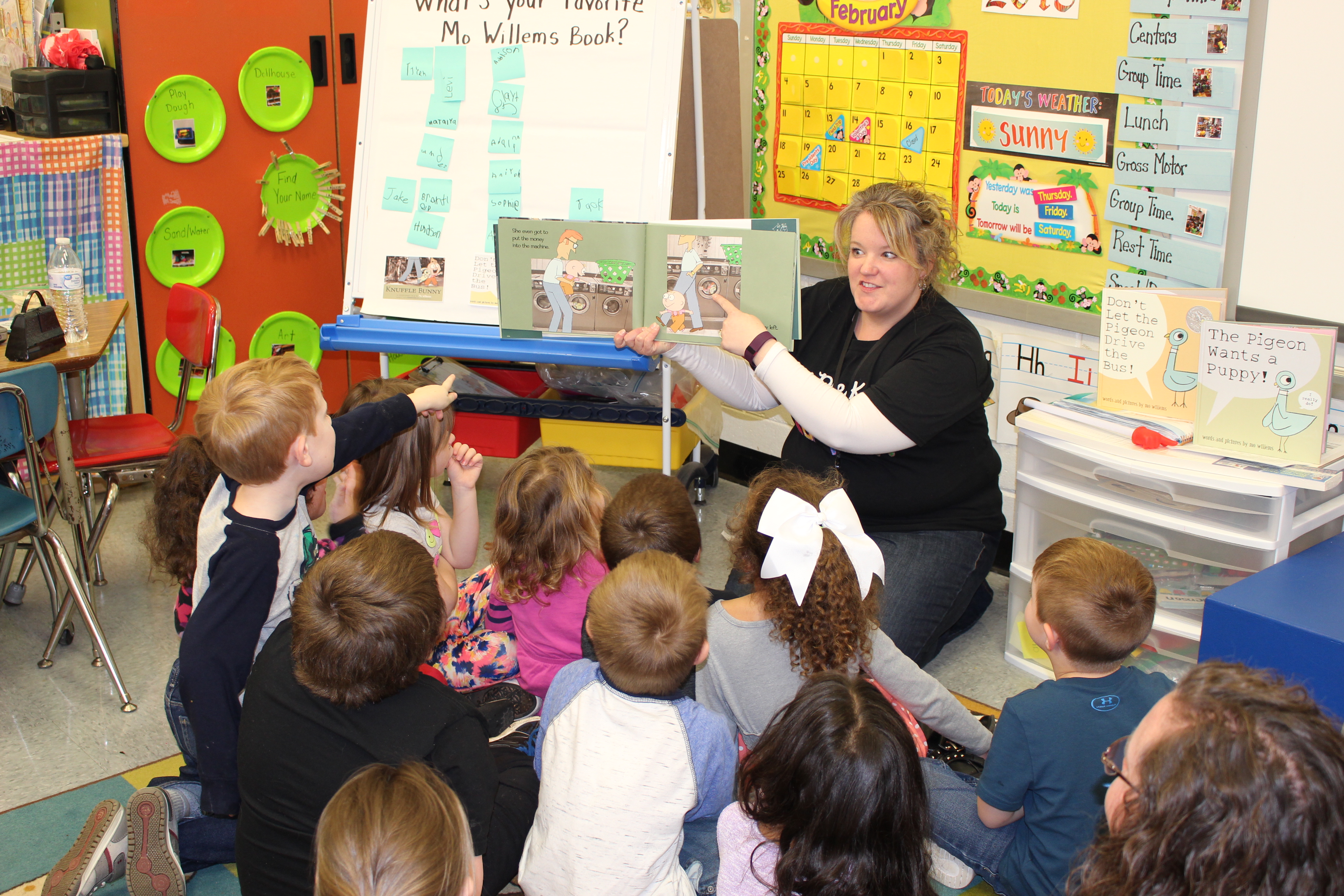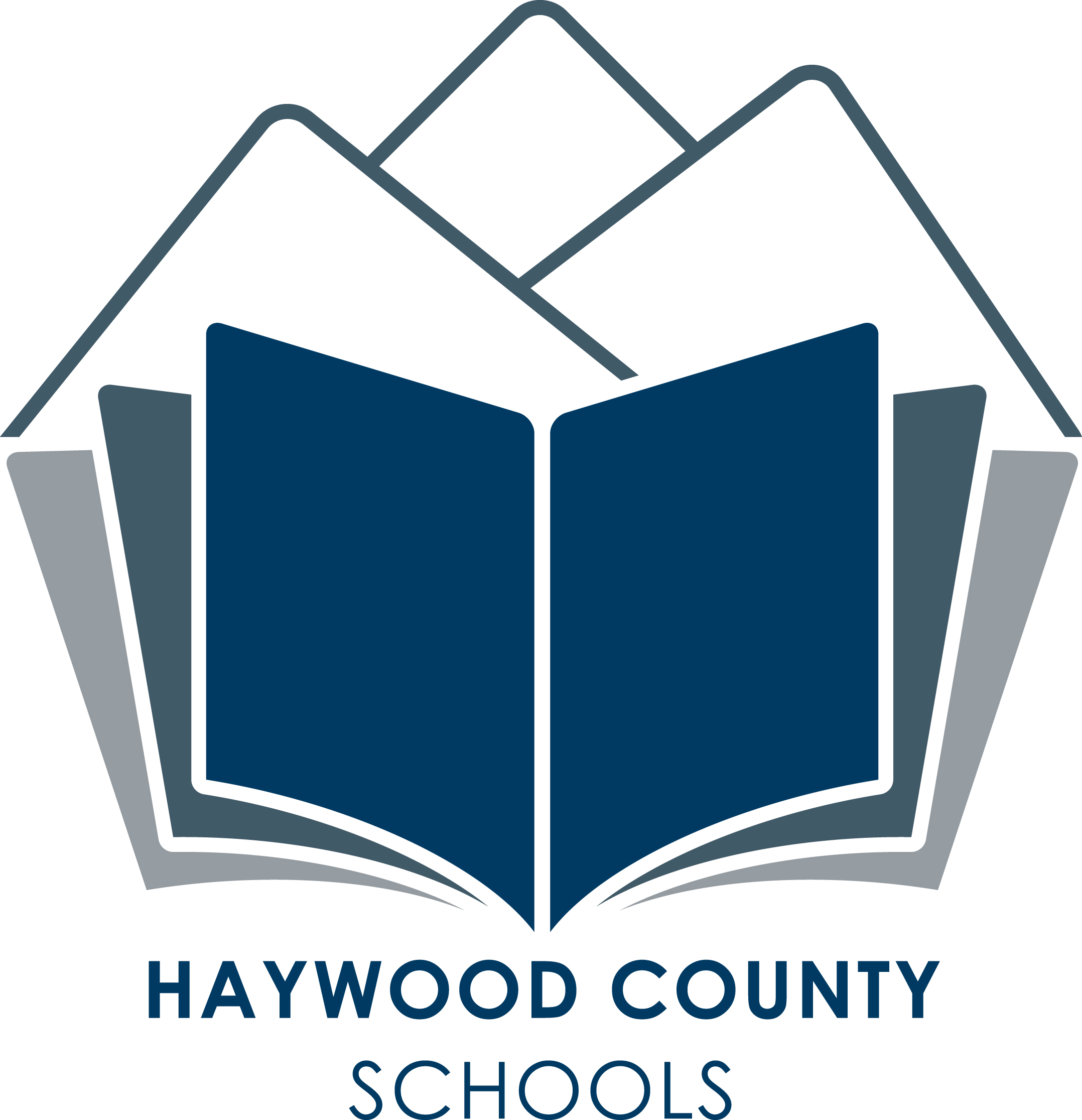
Pre-K students in Andrea Riddle’s class at North Canton conclude their day with story time after a day filled with play time, centers, and learning to read on their own
Applications for the North Carolina Pre-Kindergarten program in Haywood County for the 2018-19 school year will be available beginning February 21 at Haywood County Schools’ Central Office.
Students who are eligible for the program must be 4 years old by Aug. 31, 2018, live with a parent or guardian in Haywood County, and attend a developmental screening appointment. Children of active duty military families are also eligible.
The Haywood County Pre-K program is a state-funded program that offers a high-quality education designed to prepare 4-year-olds for school. The following elementary schools in the county have Pre-k classes: Clyde, Hazelwood, Jonathan Valley, Meadowbrook, and North Canton. This program is made possible through Haywood County Schools’ partnership with The Region A Partnership for Children and the Department of Child Development and Early Education.
“Our county’s Pre-K program positively impacts students across socio-economic levels,” Ron Moss, Haywood County Schools elementary education director, said. “Studies have shown that 88 percent of children who are poor readers in first grade will still be poor readers in fourth grade. High-quality Pre-K programs, like Haywood County Schools’, increase a child’s chances of succeeding in school and in life.”
The benefits of NC Pre-K are longstanding according to a study released in May 2017 by UNC’s Frank Porter Graham Child Development Institute. Researchers found that children had better language, literacy, and math skills following participation in the state Pre-K program.
Moss agreed and explained that the Haywood County Schools Pre-K program is designed on the premise that to be academically successful, children need to be prepared in all five developmental domains: approaches to play and learning, emotional and social development, health and physical development, language development and communication, and cognitive development. These developmental domains are critical to children’s overall well-being and success in reading and math as they enter school.
Joanna Pace, a kindergarten teacher at Hazelwood Elementary School, enrolled her son in Pre-K at North Canton Elementary School last August.
“Being a kindergarten teacher, I saw how beneficial it was for those kids in my classroom,” Pace said. “Those who had been to Pre-K were so much better prepared for kindergarten and became leaders in my class. I wanted my son to have that same kind of positive experience; that’s why I chose to enroll him in Pre-K.”
The UNC study showed that children who attended NC Pre-K had significantly better math and executive function skills at the end of kindergarten than children who did not attend the program. Low-income children in the program also went on to score better on language and math end-of-grade tests in third grade, compared to those who were not in the program.
Researchers found that dual-language learners and children with lower levels of language proficiency also demonstrated similar or greater benefits on learning outcomes from participation in NC Pre-K.
Key to the program’s success is the high quality of instruction in North Carolina’s program, researchers emphasized.
“Our Pre-K teachers in Haywood County are beyond qualified for the job and are bringing the most up-to-date teaching techniques to the classroom,” Moss explained. “Classrooms are staffed with certified, licensed teachers and teacher assistants with early childhood credentials. All of our teachers have birth to Pre-K degrees, and some even have master’s degrees.”
Moss said an average day of Pre-K consists of students playing in different centers, which are changed in the classroom frequently so that kids are always exploring and taking part in different activities. Pre-K students also get to participate in field trips, eat in the school cafeteria, and have access to afterschool care.
“My daughter, who is now thriving in first grade, loved the whole Pre-K experience of making friends, learning to read, going on field trips, and eating in the cafeteria,” Nicole Jones, a parent of two Meadowbrook Elementary School students, said. “My son is currently in Meadowbrook’s Pre-K class, and I’m so impressed with the opportunities the program gives students and the loving, nurturing staff who has encouraged him to step outside his comfort zone.”
Jones also has a two year old and one month old who she is planning on enrolling in Meadowbrook’s Pre-K program in the future.
Fee-waived eligibility for the Pre-K program is based on family income, and other factors such as developmental disability, or limited English knowledge. There are four private pay slots available for $550/month at each school with a Pre-K class. Students in Pre-K may qualify for free or reduced lunch, and transportation may be provided.
Applications for the Pre-K program will be available February 21 through April 4 at the Haywood County Schools’ Central Office located at 1230 North Main St. in Waynesville. The deadline to submit applications is April 5. For more information about the NC Pre-K program, visit the Haywood County Schools’ website at www.haywood.k12.nc.us and click on departments, then elementary education. Parents can also call Elaine Clinard at 828-456-2400 for more information about applying.
Submitted by: Carrie Sutton, HCSF
